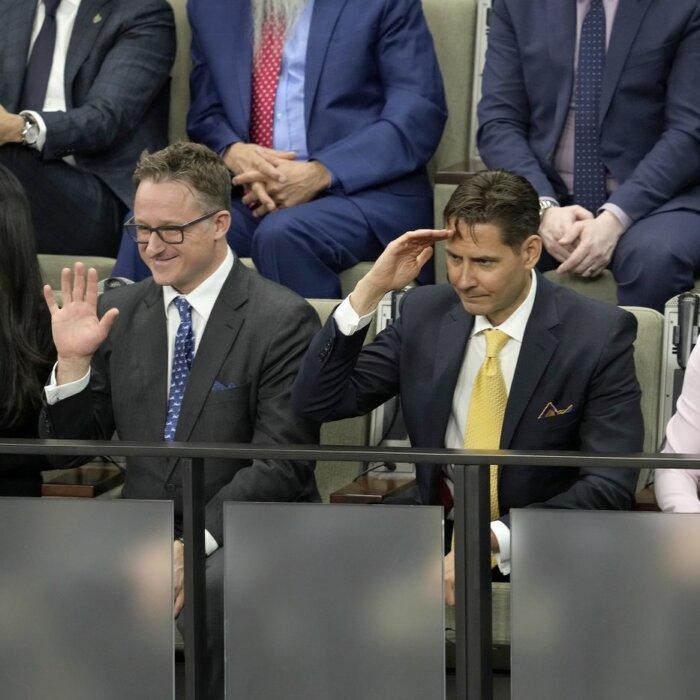Former Canadian diplomat Michael Kovrig says China’s recent calls for Canada to set aside “normal” differences and align with the communist regime in pushing back against U.S. tariffs is an attempt to drive a wedge between Ottawa and Washington to advance Beijing’s strategic goals.
Kovrig said Wang’s interview with CTV was a calculated move by Beijing, made “in the context of a much broader strategic rivalry and growing cold war between China and the U.S.”
“He’s looking to wedge Canada away from the United States, and this is a campaign that the Chinese are waging all around the world,” he said. “So it’s not just Canada. I’ve seen his counterparts in Europe trying to deliver the same message.”
‘Rewrite’ International Order
Kovrig, who was arbitrarily detained in China for over 1,000 days between 2018 and 2021, warned against acceding to Beijing’s requests.“China is not a friendly country,” he said. “[Wang’s] words are friendly, his smile is friendly, but the actions of his government are ultimately harmful to Canada’s interests and values. And it’s the same story in Europe.”
Canada’s relationship with China was put on ice after the RCMP arrested Huawei executive Meng Wanzhou in 2018 over a U.S. extradition warrant for fraud. In apparent retaliation, Beijing detained Kovrig and fellow Canadian Michael Spavor days later on espionage charges, which both men denied. The two spent nearly three years in prison before being released in a deal that saw Meng allowed to return to China.
Kovrig said “not enough people are sufficiently aware” of the risks posed by China in terms of the regime’s worldview, ideology, and agenda. He noted a “huge gap” between what the public knows and understands about these risks and what is known and understood among specialists, experts, and intelligence analysts inside the government as well as researchers and scholars outside government.
“One of the things that I keep trying to do is close that gap, because we need a wider Canadian public, European public, and Australian public to understand the challenge we’re dealing with, because we are running out of time,” he said.
“[The Chinese authorities] want to rewrite the international order. The Chinese Communist Party wants to dominate East Asia and carve out a sphere of influence in the region where every country in the region defers and first looks to Beijing before they make a policy move to make sure that China will be OK with it,” Kovrig added.
“And they want to ultimately erode that system of rules and norms that Canada has benefited from for so many years.”
‘A China Strategy’
Asked what the federal government under newly elected Prime Minister Mark Carney could do regarding Canada’s foreign policy on China, Kovrig said Carney and his cabinet should prepare the country for a “much harsher geopolitical environment.”“China is the primary driver of that shift, and so we need a China strategy, a whole-of-government strategy, where every cabinet minister is on the same page and the Chinese are not able to try to find cracks and exploit them in various ways,” the former diplomat said.
Kovrig said a full reset of Canada’s relationship with China is not possible, noting there might be “a temptation” among ministers in a new government to think, “I can be the one to crack the China problem and reset relations.”
“I think that’s going to get a cold shower. It’s not feasible,” he said.
Kovrig warned against businesses turning to China in an attempt to diversify their risks from U.S. tariffs. He said while some commodities could still be traded, the key question is what Beijing ultimately wants to achieve from that trade and how it would influence Canada’s economy.







